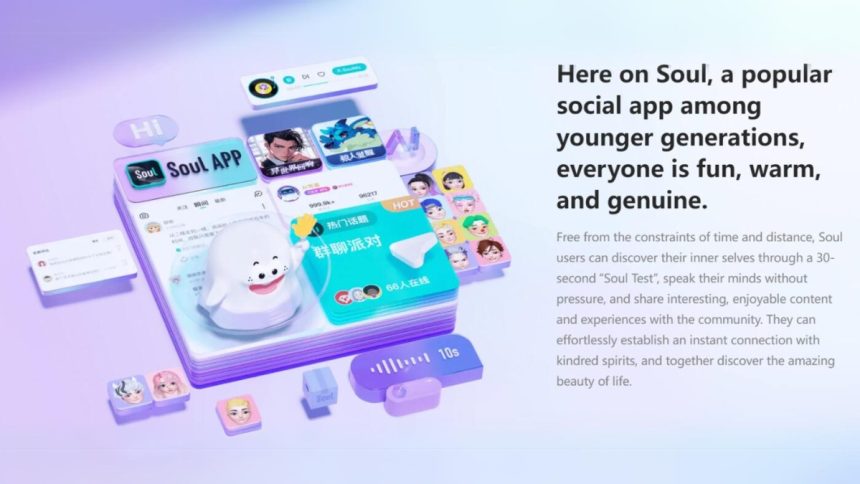The enhanced conversational abilities of ChatGPT 4o (Omni) have created quite a buzz, spurring comparisons between Omni and the AI program “Samantha” from the cult classic Hollywood movie “Her”.
The Oscar-winning science fiction film “Her,” depicted a heartbroken writer falling in love with an artificial intelligence operating system named “Samantha”. With a seductive husky voice, empathetic interactions, constant companionship, and the ability to engage in all sorts of imaginative conversations, the AI-Samantha becomes the “soulmate” that deeply connects with the writer, fulfilling his social needs and turning into a solution for his loneliness.
Today, breakthroughs in AIGC (Artificial Intelligence Generated Content) technology are fast turning this science fiction into reality. The emergence of ChatGPT, Sora, and Suno has proved that the foundational technology and innovative models of AI socialization have undergone significant changes.
In China, tech companies also have long banked on AIGC technology’s ability for human-like interactions to offer personalized experiences to their users. For instance, Soul’s AI Goudan, QQ’s AI Chat Buddy, Kwai’s AI Xiaokuai, Baidu’s Wanhua, TikTok’s Chat Stove, Weibo’s Celebrity AI Emotional Chat, and others like them have been attracting users to spend more time on their sites/apps and trying to gaining traction.
This extensive application of AIGC technology in the social field behooves two important questions – Why the sudden need to integrate AI into social media platforms and given the market frenzy, are there any competitive barriers in the AI social field?
To gain a deeper understanding of the answer to the first question, it is imperative to consider the results of a 75-year social experiment conducted by Harvard. This study proved that happiness stems from good interpersonal relationships and that humans establish relationships, acquire information, seek belongingness, and satisfy emotional needs through socialization.
Ironically, while the internet has cut down geographical barriers and stupendously enhanced connectivity, youngsters around the world are grappling with loneliness that stems from spending too much time in front of their screens and in China, the social challenges are particularly prominent.
The fast-paced lifestyle and high social costs, which include investments of time, money, and emotions, make it difficult for young individuals to establish effective social connections. And this has created a burgeoning need and market for AI socialization, which offers a new way of social interaction.
AI-powered social interactions simulate real human communication, hence they provide customized companionship experiences, which, in turn, has helped them to garner high user demand. For example, Microsoft’s “Xiaoice” has over 160 million active users in China. Of these active users, 16% exchange over 3,800 messages per week. Similarly, an average user sends 310 messages per week on WeChat.
While AI integration in video apps/features (like Sora) and music apps/features (like Suno) is still in its nascent stages, AI-human interaction technology has matured over a longer period of development. And as the technology continues to advance, users can expect AI chatbots to be capable of much more than what they are today. For instance, Soul CEO Zhang Lu led her team to launch a conversational bot named AI Goudan back in 2022, and it gained a stellar fan following on the interest-based social community platform from Day One.
At this time, AI Goudan can engage in personalized communication with users, accurately identify online social language like memes, and provide personalized care based on various behaviors such as posting and interacting.
In a recent interview with GeekPark, Soul Zhang Lu stated that conversational AI needs emotional capabilities. She added that such programs have to be designed to understand human emotional triggers, and they need to be personalized, anthropomorphized, and diversified. To ensure that these goals are met, the team of Soul Zhang Lu has programmed AI Goudan to iterate its functions in the direction of anthropomorphism and emotionalization.
Another aspect to consider when discussing the use of AIGC technology in social media is the popularity of the social application of this technology vis à vis the practical tools powered by artificial intelligence. A case in point would be Character.AI, which had 280 million visits in June 2023, which was considerably more than ChatGPT.
In China too AI social applications have shown high user stickiness. For instance, Soul Zhang Lu and her team are making nifty use of AI technology to recommend relationships, assist in conversations, reduce expression thresholds, and enhance interactive experiences. These features have led to an average user daily usage time of 46.4 minutes and an average of 66.9 private messages per day.
As far as competitive barriers go, the underlying AIGC technology is open-source, hence creating an exclusive AI companion is not difficult. But, data is a core barrier. To make self-developed models perform ideally, the quantity and quality of training data are crucial factors that directly determine the performance, iteration speed, and training costs of niche models.
While there aren’t many AI social players with high-quality, highly correlated social data assets in China, Soul Zhang Lu does have a distinct lead in this area. Soul boasts of 30 million monthly active users of whom, 80% are Zoomers. Plus, the app has been online for 7 years and it has a high penetration rate among the younger cohorts and high activity in a high-stickiness ecosystem.
Each user on Soul Zhang Lu’s platform exchanges about 70 private messages per day on average, and most of these messages are life-oriented and entertaining. For example, in terms of user interaction data, the platform has published over 600 million pieces of new content instantaneously in a year.
Compared to data from office and real-life relationship scenes, these high-quality social data assets have a higher correlation with digital social interactions in terms of emotional communication and relationship building, as such they can better train conversational AI models.
So, AI Goudan doles out conversational nuggets that stand in striking contrast to AI chats of the past, which were often shunned for being “artificially stupid,” reading and replying randomly, just offering cold polite words, and not understanding references or emotional fluctuations. In fact, Soul Zhang Lu’s AI Goudan, which has been fed platform social data, is so humanistic in its interactions that many netizens believe it’s a real person chatting under the guise of AI.
It’s this realism that has allowed AI Goudan to gain immense popularity, which in turn has spurred the team of Soul Zhang Lu to use its in-house vertical language model Soul X to infuse AI power into the other applications on the platform.
Considering the fact that AIGC technology is advancing at an unprecedented pace and that Soul Zhang Lu is determined to harness its power to offer a more personalized experience to the platform’s users, it’s a given that AI Goudan and other AI-powered features on the platform will become even more human-like in their interactions in the near future.
Lynn Martelli is an editor at Readability. She received her MFA in Creative Writing from Antioch University and has worked as an editor for over 10 years. Lynn has edited a wide variety of books, including fiction, non-fiction, memoirs, and more. In her free time, Lynn enjoys reading, writing, and spending time with her family and friends.















